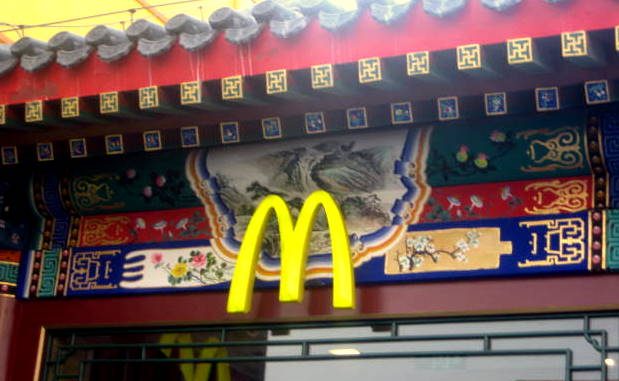
US businesses in China plan immediate lobbying trip to Washington, while bracing for retaliation by Beijing to potential Trump moves
“American companies investing in China are to lobby the incoming Trump administration to cool its rhetoric
as they brace for painful repercussions if the president-elect follows through on his trade threats.
“China is threatening to, and is preparing to, take steps in retaliation,”
Lester Ross, a lawyer and chairman of the American Chamber of Commerce in Beijing’s policy committee, warned on Wednesday.
US businesses have long sought Washington’s help in negotiating with the Chinese government and
their complaints over trade and investment access, intellectual property protection and other disputes have been growing louder in recent years.
But now businesses in Beijing are assessing the possible fallout should Donald Trump impose high tariffs on Chinese-made goods.
Many Chinese-made products exported to the US are made by or on behalf of American companies,
which have also become increasingly dependent on sales to the Chinese market.
They now fear a double blow if US levies are followed by retaliation from Beijing.
American multinationals have been “screaming for help for years”,
said Scott Kennedy, an expert on China business and politics at the Center for Strategic & International Studies.
“But now they are worried that the help that is being offered will make their lives worse.”
The chamber traditionally holds “door knock” meetings on China policy and trade with Congress in late April or May.
This year it is hastily dispatching a delegation in early February
to make sure it gets a word in before the new administration acts on its campaign pledges.
“The American business community in China is confused and worried right now,”
said James McGregor, chairman for Greater China at Apco Worldwide, a business consultancy, and a former head of Amcham Beijing.
While businesses “welcome a pushback” on “narrowing opportunities” in the country, he added,
“bombast and Twitter tantrums are not a smart way to deal with China”.
William Zarit, the Amcham chairman, said on Wednesday that
“we certainly don’t see that a trade war would benefit anyone” —
an echo of Chinese President Xi Jinping’s comments on Tuesday at the World Economic Forum in Davos.
In the US, businesses have adopted a wait-and-see attitude towards Trump’s administration, while scrambling to adapt to his unpredictable style.
They have largely hidden anxieties over Trump’s protectionist agenda and the potential for a trade war with China,
choosing instead to focus on promises of lower taxes and less regulation.
“I think Trump is doing a great job with engaging the business [community]. We’re all on the same page here,” Dennis Muilenburg,
chief executive of Boeing, a recent target of the incoming president’s ire, said after meeting him on Tuesday.
Boeing is particularly vulnerable to retaliation by Beijing, which has historically played it off against Airbus, its European rival …
Trump has not softened his message on China since the campaign.
His choice of a trade team full of China hawks has overshadowed reassurances that they are not out to start a trade war with China.
The incoming president has declared that the longstanding One China policy agreed by Beijing and Washington decades ago is “negotiable”.
He has also repeated claims that China manipulates its currency,
although he has backed away from a pledge to declare it a currency manipulator on the first day of his presidency.
That still leaves the new administration out of step with the American business community in Beijing,
for which an artificially valued Chinese renminbi has faded as a concern.
If anything, China is keeping the currency overvalued, Zarit noted.
“If it were an issue in Washington it might not be based on the facts as we see them,” he said.
A stronger stance on China, something Amcham has recommended, would have been taken even by a new Democratic administration, he added.
“But we want to make sure we don’t do things that are counterproductive to both countries.”
Finding such a balance will be difficult, given the trade team Trump has assembled.
Economist Peter Navarro, author of the book Death by China, is poised to lead a new National Trade Council inside the White House.
Robert Lighthizer, Trump’s pick for US trade representative, is also a longstanding critic of China.
Wilbur Ross, commerce secretary nominee, made a fortune turning round American steel mills and has been critical of China’s industrial policies.”
By Lucy Hornby in Beijing and Shawn Donnan in Washington
Source: US companies in China sound alarm on Trump trade stance – Financial Times